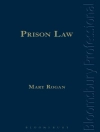The discipline of knowledge management (KM) continues to evolve along with our ability to record larger and more varied kinds of information than ever before. Since its inception in the 1990s, it has passed through several stages, quickly becoming a credible field, and now an integral part of major businesses worldwide. Now, many have started to argue that KM is undergoing resurgence, possibly even transforming into KM 3.0, thanks to developments in artificial intelligence (AI). And, while AI has been around for many years, it has become a buzzword in the industry as questions loom over what it could mean for the labor market of the future. Adoption has been relatively slow in the legal profession, owing in part to its conservative nature, individual-focused training and no real incentive to overhaul the hourly billing model1. When in-house legal teams can exceed 1, 000 people, sharing and reusing knowledge can easily become inefficient, with counsel often needlessly paying for the same research twice. Global intelligence software leader Comintelli estimates that $8.5 billion per year is lost between Fortune 500 companies alone on poor KM2, up from $31.5 billion in 20043, suggesting a recent rise in the number of firms embracing the concept. Despite this, there are still challenges posed to the legal world, and sharing insight is more vital than ever, not only within companies but between them. Innovations in Legal KM explores the endeavors of various legal firms – the problems they have faced, and the solutions they have developed – to improve their KM processes, and, ultimately, their bottom line.
विषयसूची
This book is divided into nine chapters, each one a case study focusing on a specific area of KM in practice. In Chapter 1, Helene Russell, founder of The Knowledge Business, reminds us that KM projects aren’t always easy to measure. In her case study, she simplifies this task by highlighting how to understand your purpose in measuring, the audience for whom you are measuring, and the practicalities of measuring for an accurate result. Oz Benamram reflects on how White & Case became a hostage in a vendor relationship and used innovation to find a solution in Chapter 2. With reference to the suppliers of legal information and change management, Benamram describes how White & Case has optimized its research tools to deliver value through increased efficiency and – interestingly – reduction of costs to clients. In a similar vein, Jack Bostelman, president of KM/JD Consulting LLC, and Chris Boyd, senior director of professional services at Wilson Sonsini Goodrich & Rosati LLP, outline in Chapter 3 how implementing KM projects into a firm can increase profitability and create more value from work undertaken. Using a base case model, they show how a firm’s financial figures can be improved with three kinds of KM project, proving that a rethink of a lawyer’s day-to-day practice can have realistic financial benefits. ‘How do you fix something that no one thinks is broken?’ So asks Cynthia L. Brown, recognizing the endemic problem facing law firms. The solution to this problem need not come in the form of huge, firmwide changes. In Chapter 4, she introduces Littler Mendelson’s Knowledge Desk, a centralized system designed to consolidate attorneys’ questions, increase the efficiency of its internal KM and similar departments, free up time for higher-level projects, and – most importantly – better serve its attorneys. In Chapter 5, Mark Gediman, of Best Best & Krieger LLP, explores how a law firm library can effectively utilize KM to help deal with partner requests. Using a real-world example of a request for a specialized repository of documents, Gediman runs through the key areas of information that KM has to offer, and how they can be leveraged to effectively respond to a partner’s request. Andrea Miskolczi of Wolf Theiss tackles the problem of the industry itself: lawyers are taught not to like collaboration and silo themselves away. Using research from Dr. Heidi Gardner Ph D, a Distinguished Fellow in the Center on the Legal Profession at Harvard Law School, Andrea Miskolczi looks at the barriers to and benefits of smart collaboration in Chapter 6, and what steps can be taken to break down those silos. It is easy to forget that a firm’s size can have such a huge impact on its resources, and therefore its departments. Harriet Creamer talks about the way forward for smaller and medium-sized companies in Chapter 7, advocating a lawyer-led KM model, where resourcing is largely focused on lawyers, rather than dedicated KM resources. In Chapter 8, Cyndi Murphy gives a detailed walkthrough of how Stewart Mc Kelvey has begun to leverage its data. It has taken advantage of tools such as a reduced and more consistent taxonomy, a centralized user interface that’s easy to use and an added versatility to that system so that old data can be used in new ways. Now with SMart Net, the company’s centralized document management system, it can feedback in real time and continue to utilize matter-centric KM. James Loft, CEO at Aigen, looks at value within organizations and how they approach problems and seize opportunities in complex working environments. The concept of `value’ is perhaps taken for granted nowadays; in Chapter 9, James draws a clear picture of what value is in relation to certain technologies, and how that can be used to make new knowledge from old, scale automated decision-making, increase specialization and support those working environments the best possible knowledge. References: 1 Lamont, J., ‘AI takes hold in the legal profession’, January 2017. See: http://www.kmworld.com/Articles/Editorial/Features/AI-takes-hold-in-the-… 2 Are you suffering from Infobesity? (2017, September 21). Retrieved from: https://comintelli.com/are-you-suffering-from-infobesity/ 3 Babcock, P., ‘Shedding Light on Knowledge Management’, May 2004. See: https://www.shrm.org/hr-today/news/hr-magazine/Pages/0504covstory.aspx
लेखक के बारे में
Oz Benamram Oz Benamram is chief knowledge officer at White & Case, providing the firm with strategic direction on the use of KM and technology. He leads the knowledge department in developing and implementing the systems and processes that enable the firm to use its collective knowledge to benefit clients worldwide. Oz is a globally recognized thought leader and a frequent speaker on legal IT and KM subjects. He has won numerous awards for leading innovation in legal KM, including the creation of an enterprise search system. Helene Russell Helene Russell of The Knowledge Business specializes in helping organizations to grow and improve profitability, by helping them to understand and improve their knowledge systems. Helene is the author of the Law Society’s Knowledge Management Handbook and Legal Monitor’s Practical Projects in Legal KM. She teaches open and in-house courses in knowledge management and also offers coaching, mentoring, and advice. She also runs Knowledge Network UK, the only regional knowledge sharing and networking group for law firm KMers in UK. Helene has spoken extensively on KM for Ark, Butterworths, UWE, Bristol Law Society, Allice, and at Knowledge Network UK, and has written regularly for Managing Partner Magazine. After a decade as a solicitor with a major regional firm specializing in clinical negligence defense litigation, eight years in knowledge management and having recently obtained an MBA with distinction, she has a unique, deep understanding of how knowledge flows helps law firms and professional services organizations. Jack Bostelman Jack Bostelman is president of KM/JD Consulting LLC in San Francisco, California, which advises law firm leaders on practice management, including knowledge management and other productivity improvements. Before founding KM/JD Consulting, Jack was a partner for over 20 years at pre-eminent Am Law 20 firm Sullivan & Cromwell in New York City, where he had a nationally recognized transactional securities law practice and exercised management responsibilities. Chris Boyd Chris Boyd is senior director of professional services at Wilson Sonsini Goodrich & Rosati LLP in Palo Alto, California. Chris runs the firm’s recruiting, training, and knowledge management programs, all of which are designed to help the firm deliver superlative value to its clients. Chris was previously an attorney at the firm and also led KM programs at several internet start-ups. Mark Gediman Mark Gediman is the director of information services for Best Best & Krieger, LLP and has been with BB&K since 2000, managing the research needs of more than 200 attorneys and paralegals in nine offi ces from DC to California. He is a past-president of the Southern California Association of Law Libraries (SCALL) and the co-founder and co-chair of the Competitive Intelligence Caucus of the Private Law Libraries- Information Professionals (PLL-IP) of the American Association of Law Libraries (AALL). He has over 25 years of experience in law library management and writes regularly on Competitive Intelligence, research, and library management issues. He presents frequently for AALL and the Inland Counties Association of Paralegals as well as for SCALL, No CALL, ACI and HALL. He has authored Chapter 8 of Business Intelligence for Law Firms (ARK Group, 2012) and articles in AALL Spectrum, Practicing Law Management Week, Paralegal Today, and Facts & Findings – The Magazine of the National Assoc. of Legal Assistants (NALA). He is a graduate of the University of California, Riverside. Harriet Creamer Harriet Creamer has over 25 years of experience of working in the legal services sector, both as a client lawyer and in management. Harriet trained, practiced and became a partner at Freshfields Bruckhaus Derringer, where – having become the City of London’s first PSL – she headed up their knowledge management function, developing and managing knowledge services across their worldwide network of offices. Since leaving Freshfields, Harriet has been a director of Outer Circle, a consultancy she established with a colleague to provide knowledge management and practice development advice, principally to professional services firms. She has extensive experience of helping firms use their knowledge strategically, both to strengthen client relationships and drive profitability. She also advises firms on how to ensure that their knowledge management activities are aligned to and support the delivery of their strategic business objectives and that they derive value from their investment in knowledge management. She regularly works with partners and groups of partners to help them identify and prioritize the development of key knowledge tools for their practice areas. Harriet is an experienced presenter and a regular speaker at KM conferences and other events, as well as writing regularly on aspects of KM for the legal press. She is a member of the Law Society’s Standing Committee on Company Law. Andrea Miskolczi Chief Marketing and Business Development Officer, Wolf Theiss Cyndi Murphy Cyndi Murphy is the knowledge manager in the Halifax, Nova Scotia office of Stewart Mc Kelvey. Her firmwide responsibilities include liaising with various administrative departments for the successful implementation of knowledge management projects, overseeing content management of the internal Sharepoint portal and various internal research-oriented databases, and attending meetings of the Practice Innovation Advisory Committee. She was a member of the three-person team that designed and implemented a new Sharepoint portal which launched in January 2016 and she continues to be integrally involved with ongoing enhancements to the portal. Cyndi is a former president of the Canadian Association of Law Libraries and an active member of the association’s Knowledge Management and Private Law Libraries Special Interest Groups. Cynthia Brown Cynthia Brown is the director of research services at Littler Mendelson, the world’s largest employment and labor law practice representing management where she has bridged the worlds of the Library and Knowledge Management since 2007. Her previous experience includes working as in-house counsel for four years at a small risk management firm, as an account manager and training consultant at Lexis Nexis, and running a solo library in Salt Lake City at Jones Waldo Holbrook & Mc Donough. James Loft James Loft is a graduate of knowledge management from Loughborough University and has worked extensively in innovation and new technologies in transport and financial services culminating in the running of an artificial intelligence consultancy firm that helps companies make AI tools fit their businesses rather than the other way around. His mission is to demystify the world of `applied AI’ for organizations, to level the playing field for the progression of the technology now, rather than as a vision for the future. With an experienced background in innovation and service design, he understands the gentle but vital balance between design and technology, and advocates an MVP style approach to new technology in order to achieve success. An active member of a community of AI companies, tools and platforms, James possesses a broad understanding of the possibilities the technologies can offer and will support in their implementation where possible to advance the marketplace. Kathy Skinner Kathy Skinner is Director of Research and Information Services at White & Case. In her role, Kathy leads the global research and information team as port of the firm’s broader knowledge function, and she is responsible for the coordination and delivery of research services and products, along with ensuring operational excellence and cost-efficiency in all of the firms’ 41 offices. Prior to joining White & Case, Kathy was director of research services at Morrison and Foerster. Kathy received her A.B. and M.L.I.S. degrees from the University of California at Berkeley.












